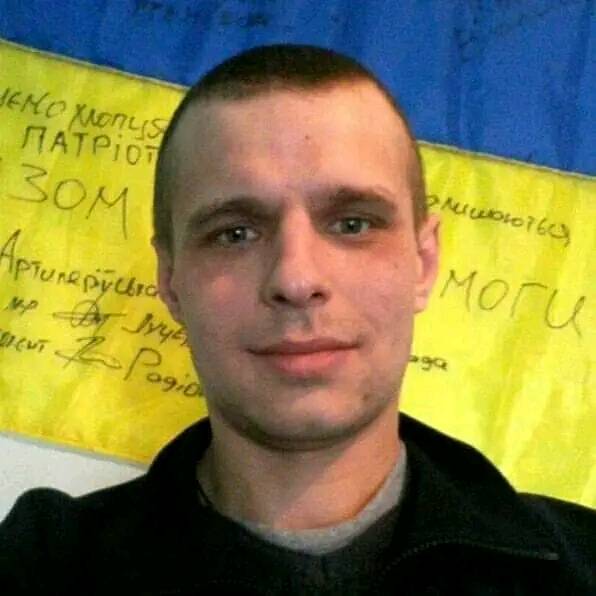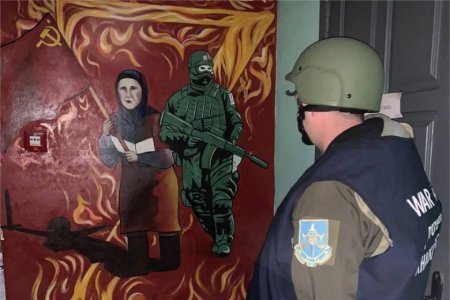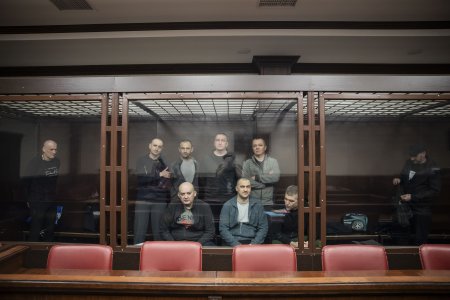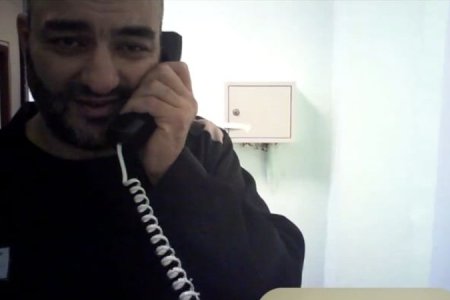
The European Court of Human Rights [ECHR] has found Ukraine in violation of the prohibition against torture over its failure to properly investigate allegations that Mykola Slyvotskyy was tortured into ‘confessing’ to two murders. While the Court said that it was unable to establish beyond reasonable doubt that Slyvotskyy had sustained his injuries while under the control of the police, it noted that this was because of the failure of the authorities to carry out a timely and comprehensive investigations into his complaints. That failure may well have led to an innocent man having already spent 20 years imprisoned, with no prospect, at the present time, of release.
Mykola Slyvotskyy is one of the life prisoners whose cases have been highlighted by human rights groups as arousing serious fears of a grave miscarriage of justice. He has consistently asserted his innocence and his lawyer, Oleh Veremiyenko insists that there is no evidence against him, except the supposed ‘confession’ which Slyvotskyy says he signed after the ‘investigators’ not only tortured him but also threatened that they would do the same to his mother and wife. There is, in addition, the confession of another man (Serhiy Kravchenko) to one of the murders.
In the case of Klimov and Slyvotskyy v. Ukraine, ECHR considered two applications involving allegations of ill-treatment by the police in order to extract false self-incriminating statements, and of ineffective investigation into their complaints. It found that Ukraine had violated Article 3 of the European Convention, namely the prohibition of torture, in both cases.
The judgement explains that, according to Slyvotskyy, he was taken on 3 November 2003 to a forest, where several officers from the Voznesensk police “subjected him to “Palestinian hanging”, threatened to torture his relatives, punched and kicked him, and pressed pistols against his forehead in order to force him to confess to a murder. On 4 November 2003 the beatings and threats continued on the premises of the Voznesensk police station. Subsequently, in breach of the applicable law, the applicant was detained until April 2004 in subhuman conditions in the basement cell of the Voznesenk police detention centre (“ITT”, designed for short-term detention only) with a view to breaking his moral resistance and forcing him to confess to several other crimes; two convicted inmates frequently woke the applicant at night to keep him exhausted, acting on police orders.”
As mentioned, the impossibility of confirming or refuting Slyvotskyy’s allegations of physical injury is directly linked by the Court to the failure of the authorities to ensure a timely forensic medical examination and take other investigative steps. One of the key issues that ECHR notes is the “hasty conclusion that no ill-treatment took place, which was based essentially on the officers’ own testimonies taken at face value and the unavailability of medical records”.
The Court ordered Ukraine to pay Slyvotskyy 7.5 thousand euros in compensation. Veremiyenko is planning to seek a review of Slyvotskyy’s case and says that he will be seeking his full acquittal.
As reported earlier, there are other concerns about the ‘investigation’ into the charges against Slyvotskyy, including the failure to obtain other evidence, including DNA.
Slyvotskyy is from Voznesensk in the Mykolaiv oblast. In Autumn 2003, two women from the area, both in their fifties, were murdered. Serhiy Kravchenko had been arrested and had admitted to the first murder, that of 54-year-old Vera Krysztal. He was in detention when the second murder took place, that of 56-year-old Valentina Hrachova.
In November 2003, Slyvotsky had just turned 22, but was already married and the father of a five-month-old baby girl. Although he was working as a tractor driver, his stepfather had a managerial post in a road transport registration and examination department. As well as the allegations of torture and threats of reprisal against his family, both Slyvotskyy and his mother assert that the officers who arrested him had tried to get 10 thousand dollars out of the family to drop the case against Slyvotskyy. They, and Veremiyenko believe that he was targeted because the stepfather was seen as having access to money.
As mentioned, Kravchenko had confessed to murdering Vera Krysztal. He had been convicted of several crimes in the past, including the murder of an elderly woman when he was 15. He had only recently been freed from prison, and Krysztal had testified against him in one of his previous criminal prosecutions. He gave a detailed account of where he had hidden her body, what she was wearing, and how she was killed.
Despite all of this, Kravchenko was released from custody and Slyvotskyy charged with both murders. Kravchenko died soon afterwards, in suspicious circumstances. Slyvotskyy was sentenced to life imprisonment which in Ukraine means dying in prison. There are manifestly grounds for a proper judicial review of the charges against Mykola Slyvotskyy.
See also:
Zelensky urged to veto law that puts Ukraine on track for more damning European Court judgments (the President, regrettably, ignored the calls)



